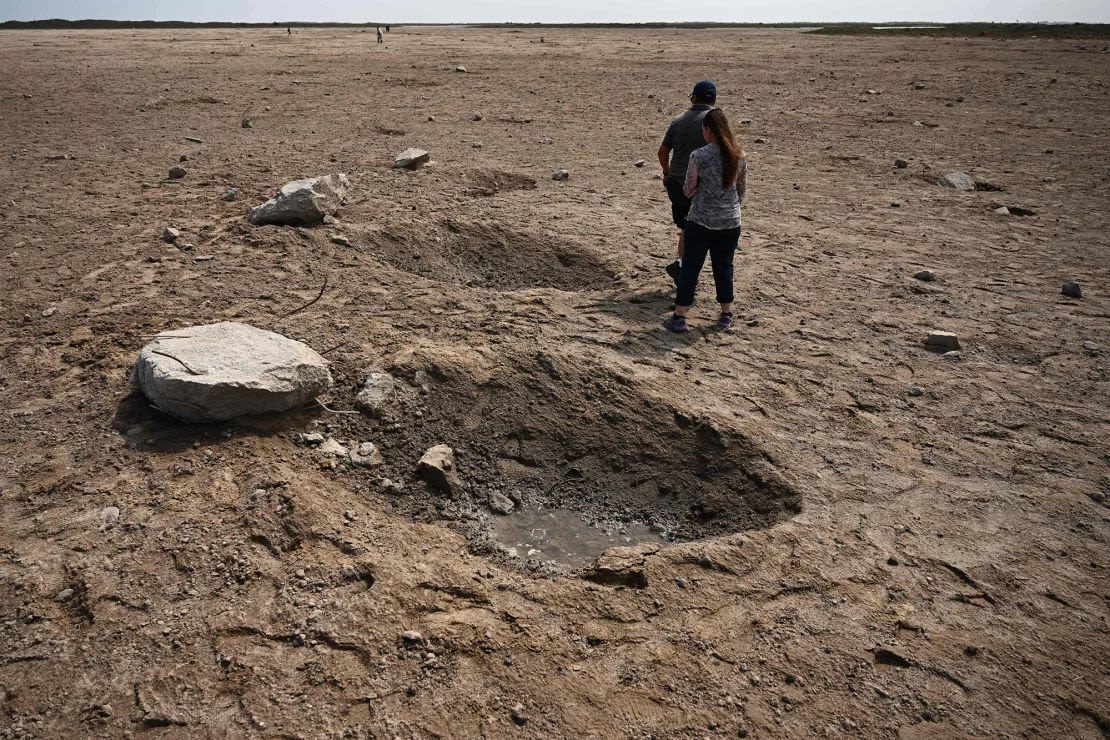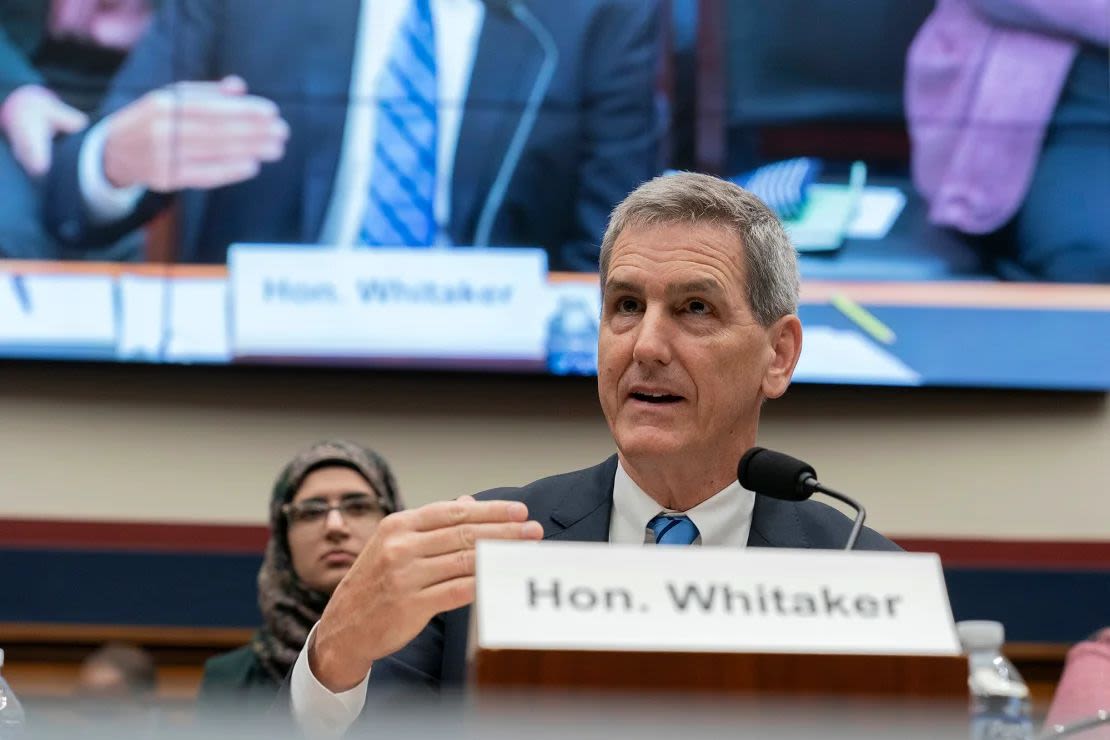Sign up for ‘s Wonder Theory science newsletter. Explore the universe with news about fascinating discoveries, scientific breakthroughs and more.
() – Federal regulators granted SpaceX its long-awaited license to move forward with a fifth uncrewed Starship test launch, the most powerful ever built.
The US Federal Aviation Administration (FAA), which licenses commercial rocket launches, announced this Saturday that SpaceX had “met all safety, environmental and other licensing requirements for the test flight.” suborbital”.
The Super Heavy rocket, topped with the Starship spacecraft, is expected to lift off from SpaceX’s Starbase facility in Boca Chica, Texas, during a 30-minute launch window beginning at 8 a.m. ET on Sunday, according to the site. SpaceX website.
The demonstration mission is on track to include an ambitious attempt to maneuver Starship’s 232-foot-tall (71-meter) booster rocket back to a massive landing structure after burning most of its fuel and separating from the ship. Starship top space. If successful, the Super Heavy will be caught in the air with a pair of huge metal clamps that SpaceX calls “chopsticks.”
Watch the exciting landing of SpaceX’s Starship in the Gulf of Mexico
Meanwhile, the Starship spacecraft will continue to fly on its own, using its six onboard engines, before practicing a landing maneuver over the Indian Ocean about an hour after launch.
The goal of each milestone is to resolve how SpaceX could one day quickly recover and re-fly Super Heavy boosters and Starship spacecraft for future missions. Rapid reuse of rocket parts is considered essential to SpaceX’s goal of dramatically reducing the time and cost of delivering cargo — or ships carrying people — to Earth orbit and deep space.
Finally, SpaceX plans to use the Starship capsule as the lander that will transport NASA astronauts to the lunar surface as early as 2026 as part of the Artemis III mission, and eventually carry the first humans to Mars.
The FAA’s approval for this mission comes as SpaceX — and particularly its combative CEO Elon Musk — and the federal agency have been publicly feuding.
The FAA was expected to grant a license for this test launch weeks ago. SpaceX said the Starship vehicle has been ready to be launched “from the first week of August.”
But the agency delayed the license because SpaceX had submitted the application without “disclosing that they were in violation of Texas and federal law on some matters,” said FAA Administrator Mike Whitaker. during an appearance before Congress on September 24.
Whitaker noted that a 30-day delay was triggered when SpaceX failed to provide the FAA with an updated “sonic boom report.” Sonic booms are the loud noises that a rocket can make when it begins to travel faster than the speed of sound.
Another delay was caused by SpaceX’s “failure to comply with Texas law,” Whitaker said, apparently referring to allegations that SpaceX did not have proper permits to operate a water deluge system in Texas that is used to buffer the impact of the Super Heavy booster rocket upon takeoff.

In a publicly shared letter, SpaceX denied Whitaker’s claim that the delays were related to public safety.
“Furthermore, your claim that SpaceX violated state law is simply incorrect. “SpaceX did not violate state law: SpaceX had a permit for deluge operations from the Texas Commission on Environmental Quality (TCEQ),” the company said in a Sept. 24 statement. (The commission did not immediately respond to ‘s request for comment.)
SpaceX has also publicly denied reports that the company violated wastewater regulations with the deluge system, which SpaceX says uses potable water.
In a blog post in SeptemberSpaceX also said that “outlet water has been sampled after each use of the system and consistently shows negligible traces of any contaminants and, specifically, that all levels have been kept below standards for all state permits.” that would authorize the discharge.”
In a statement about the water deluge system, the FAA said Friday that it considers SpaceX to be in compliance with the Clean Water Act.
That determination came after the FAA received confirmation from Texas regulators and the federal Environmental Protection Agency (EPA) in August and September, respectively, that SpaceX had agreed to “obtain a Discharge Elimination System permit.” Texas Pollutants, pay civil penalties, and comply with various monitoring and reporting requirements,” according to an FAA statement.
The EPA referred questions to the Texas Commission on Environmental Quality, which did not respond to ‘s requests for comment.
SpaceX is also facing a lawsuit from environmentalists over the issue, which the company has described as “unjustified and frivolous.”
Waiting to fly
SpaceX had indicated in late September that it expected to receive approval for the final Starship test flight in November. That time frame was unexpectedly moved forward in early October.
It is unclear what prompted the change.
Musk has repeatedly used X, the social media platform formerly known as Twitter that he bought two years ago for $44 billion, to criticize the FAA.
In one publication of September 17, threatened to sue the agency for “regulatory overreach.” Musk, who has taken an increasingly vocal stance on politics, expressing his distaste for the Biden administration and his support for former President Donald Trump, also published on September 25 who believes Whitaker “should resign.” Musk has also alleged that the agency’s activities have been “politically motivated.”
Musk’s statements came after the FAA proposed US$633,009 in sanctions civil lawsuits against SpaceX for violating launch licensing requirements twice during flights of its Falcon 9 rocket.
SpaceX has denied wrongdoing regarding those requirements, saying none of the allegations were related to public safety. In a Sept. 18 letter, the company said it also gave the FAA advance notice of changes to its launch operations and that the agency failed to act in a timely manner.

Appearing before the US House Transportation and Infrastructure Committee in September, Whitaker said he supported SpaceX’s goals but hoped to hold the company accountable.
“I agree that this is a vital mission,” Whitaker told Rep. Kevin Kiley, R-Calif., about SpaceX’s Starship development. “I think SpaceX has been a very innovative company, but I also think it is a mature company. … And I think they have to operate at the highest level of security.”
SpaceX has already had problems with the FAA in starship testing. Specifically, in 2020 the company launched a test flight of a rocket prototype, called Starship SN8, without obtaining prior approval from the FAA for a public safety exemption. At the time, the FAA said it had denied the waiver, although it did not plan to take further enforcement action against SpaceX.
Musk’s tone regarding the FAA has routinely changed. At one point in 2023, for example, he said he didn’t blame the FAA for delaying the Starship launches.
“To be fair to the FAA, it is rare for them to cause significant launch delays,” Musk declared at the time. “Overwhelmingly, the responsibility is ours.”














![[Img #74676]](https://thelatestnews.world/wp-content/uploads/2024/12/Laser-artificial-neuron-300x200.jpg)
Add Comment